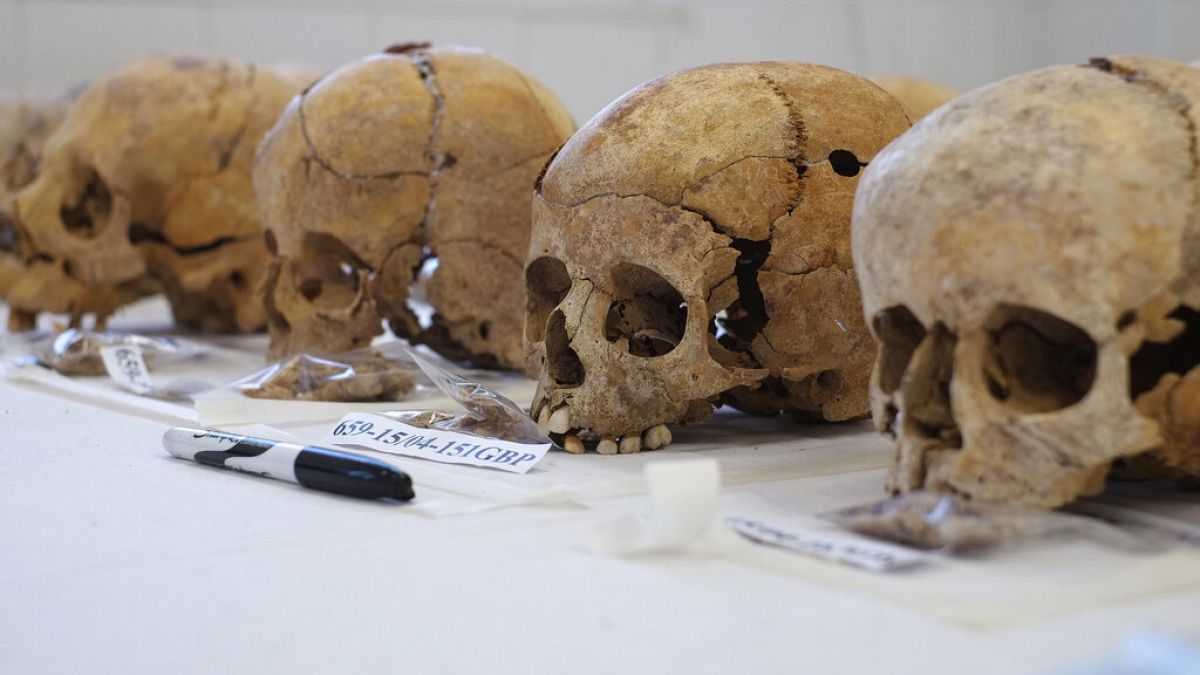The conflict in the 1960 and 70s left thousands of people dead or missing and displaced a quarter of the Greek Cypriot population.
Thousands of people are still missing in Cyprus, 50 years after the Turkish invasion of 1974, leaving families unable to hold funerals for them and end their mourning.
This Sunday, July 21, marks 50 years since the invasion split the island. The southern part, where most people speak Greek, is an internationally recognised independent state that joined the EU in 2004.
For Northern Cyprus, only Turkey considers it an independent country.
Search for the missing continues
Every year, Greek Cypriots commemorate the thousands of people who died in the conflict. The people who are still missing are also commemorated, even as the search continues.
“We are looking for our missing. It doesn’t matter whether we are looking for Greek or Turkish Cypriots. We are looking for ours, all of them belong to Cyprus,” says Cypriot archaeologist Ceren Ceraloglu at the site of a mass grave just outside Nicosia from 1974.
The island’s Bi-Communal Committee on Missing Persons, which is made up of both Greek and Turkish Cypriots, along with archaeologists, is trying to find the remains of those who are still missing.
Eyewitnesses have stated that sixteen people were buried there at the time. Archaeologists monitor the search, always in pairs: one Greek Cypriot and one Turkish Cypriot.
“Archaeologists found the bones you see on these tables,” says anthropologist Theodora Eleftheriou.
“We were brought boxes of them to the lab. Some bones were all jumbled together. We tried to synthesize the bones to create the skeleton of these four individuals.”.
Even as scientists struggle to identify the bones being discovered in Cyprus, the Committee for Missing Persons has already found almost 1,000 people, including missing civilians and soldiers, on both sides of the conflict at the time.
“Sometimes only a few bones are found, and sometimes an entire profile of a body is revealed. But it often takes years before it becomes clear exactly who that person is. If that happens, if all the pieces of the puzzle have fallen together and identification can take place, then that is a very important moment for family and relatives. They can then finally close a chapter,” Eleftheriou said.
But for some relatives this alone can be enough.
“As bones, a skeleton he came back. But we are happy that he has finally come back, and we shall bury him next to our mother. We were very happy because now we are at the end of our story,” Kutlay Erk, a relative of one victim said.
“These are the things Petros had in his pocket,” said another relative. “Something of Petros. The shoes.”
Turkey’s invasion
Cyprus gained independence from Britain in 1960, but violence swiftly tore apart the combined government between Greek and Turkish Cypriots.
Fourteen years later, Turkey, encouraged by Greece, invaded in response to a coup by Greek Cypriots.
Protecting Turkish Cypriots, who accounted for around 18% of the island’s population, served as a pretext for the invasion.
Almost 160,000 Greek Cypriots were driven south, and more than a third of the island was taken over by Turkey. More than 3,000 people died.
Reunification efforts have failed
Attempts to reunify Cyprus have, so far, always failed. While Greek Cypriots want reunification as a federation, Turkish Cypriots want a two-state settlement.
The Greek-speaking and Turkish-speaking Cypriots do not agree on, among other things, the geographical division of the island.
It has been relatively quiet in Cyprus for years, but the situation remains tense.

